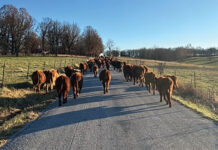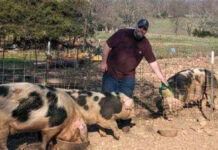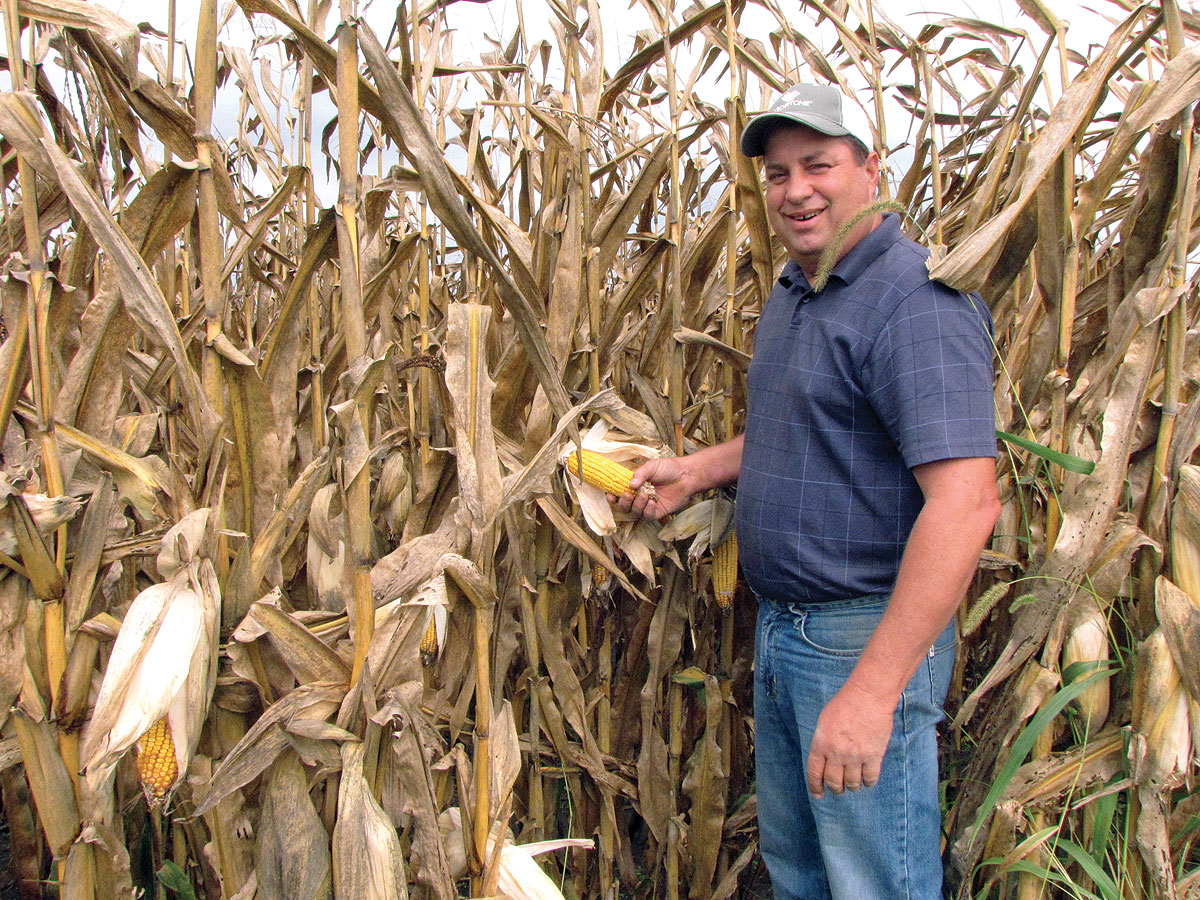
"They are like little members of our family,” chuckled Fern Welker, when talking about the goats she and her husband, Max, raise just outside of West Plains, Mo., in Howell County.
Eula Valley Boer Goats and Pyrenees Dogs, as they call their farm, has been in the family for right at 100 years, explained Fern. “My grandfather homesteaded this land and at that time there was a little community and post office named Eula. That’s how we chose the name for our farm.”
The Welkers raise their goats more as a hobby now since they are both retired. “I retired from the Circuit Court Clerk position for Howell County and Max is a retired police officer,” Fern said. “We had owned goats before, but were losing them to what we realized were predators and it just became too much trouble, so we sold them.
“We’ve had these goats about five years now,” she recalled. “When we had the opportunity to buy them, a dog came with them. We currently have 28 nannies and 10 babies. We just started our birthing season and some of the goats are only a few days old.”
The breed of choice for the Welkers is Boer goats. They have brown heads with white bodies. “Most of our animals are full blood and could be registered. We like this breed because they are easy to manage and handle,” Fern said.
“They also feed out fast,” added Max. “We keep the girl babies and sell the boys at the auction in Koshkonong.”
The Importance of Dogs
“The dog we purchased with these goats was part Pyrenees,” said Fern. “Then in 2007 we bought two Pyrenees puppies. When we got them, they were still small and just bundles of fur with black eyes and noses.
“As they grew, we left them with the big dog and she helped train them to be goat dogs. Now they stay in the field with the goats and check the perimeters for predators.
“When it’s time for the nannies to have babies, the dogs can sense this and spend extra time with and around the soon-to-be mommas. They actually help clean the babies and the nanny and act as almost a nurse to the goats. They help protect and take care of the babies and new mommas,” said Fern.
“We haven’t lost a goat to predators since we got the dogs,” added Max.
Fern explained, “When we had goats the first time, we had some babies disappear and we actually thought someone had stole them. They were by the fence in the morning and gone later in the day with no sign of them anywhere. Later that night, we noticed a coyote around the perimeter fence and realized that was probably what happened to them.”
“We had different people telling us we needed dogs or a donkey or llama to help protect our goats, but we didn’t know anything about them at the time. Now we wouldn’t trade our dogs for anything.
“They even appear to be trying to help some geese that live on our pond. There’s a little island and when the geese lay eggs, one of the dogs goes out to the island and carries it back to the trailer and hides them. I think she’s trying to protect them too, she just doesn’t realize it’s not helping,” Fern chuckled.
Breeding and Birthing Time
“This year we used a billy that my brother had, to breed our nannies. We breed so we don’t have babies in the winter,” she said. “We like to wait until April so the weather is warmer.
“We have barns the goats can access, but we let them decide where they want to kid. Sometimes they stay in the field and sometimes they come inside. It’s more difficult in the winter because you have to bring them in and take closer care of them. It seems to be more natural in the spring,” explained Fern.
“Of course we keep all the goats dewormed as this is the most common issue in goats. After the babies are born we give them colostrum to be sure they are getting enough of the natural nutrients and they also receive a CDT shot. We spray their navels when they are born to help keep them from getting an infection.
“We take care of the goats and do most of our own vet work. I have a family member who works for a local vet, so I can generally call and get my info and medicine from that vet office,” explained Fern. “We try to deworm them at least every couple of months and we don’t really have trouble with worms.”
Advice and Suggestions
“I would suggest to get some good, full blooded Boer goats. We raise ours on pasture land, but they do like brush, so they can be placed on about any type of land we have here in the Ozarks,” explained Fern.
“We enjoy goats over other livestock because they are easier to handle and they have great personalities,” she recalled.
“We have eight children and 22 grandchildren and most still live in this area. And of course, we enjoy when the kids come out and see our goat kids,” she concluded. “We truly enjoy getting to do this and raise the goats here on the family farm.”







